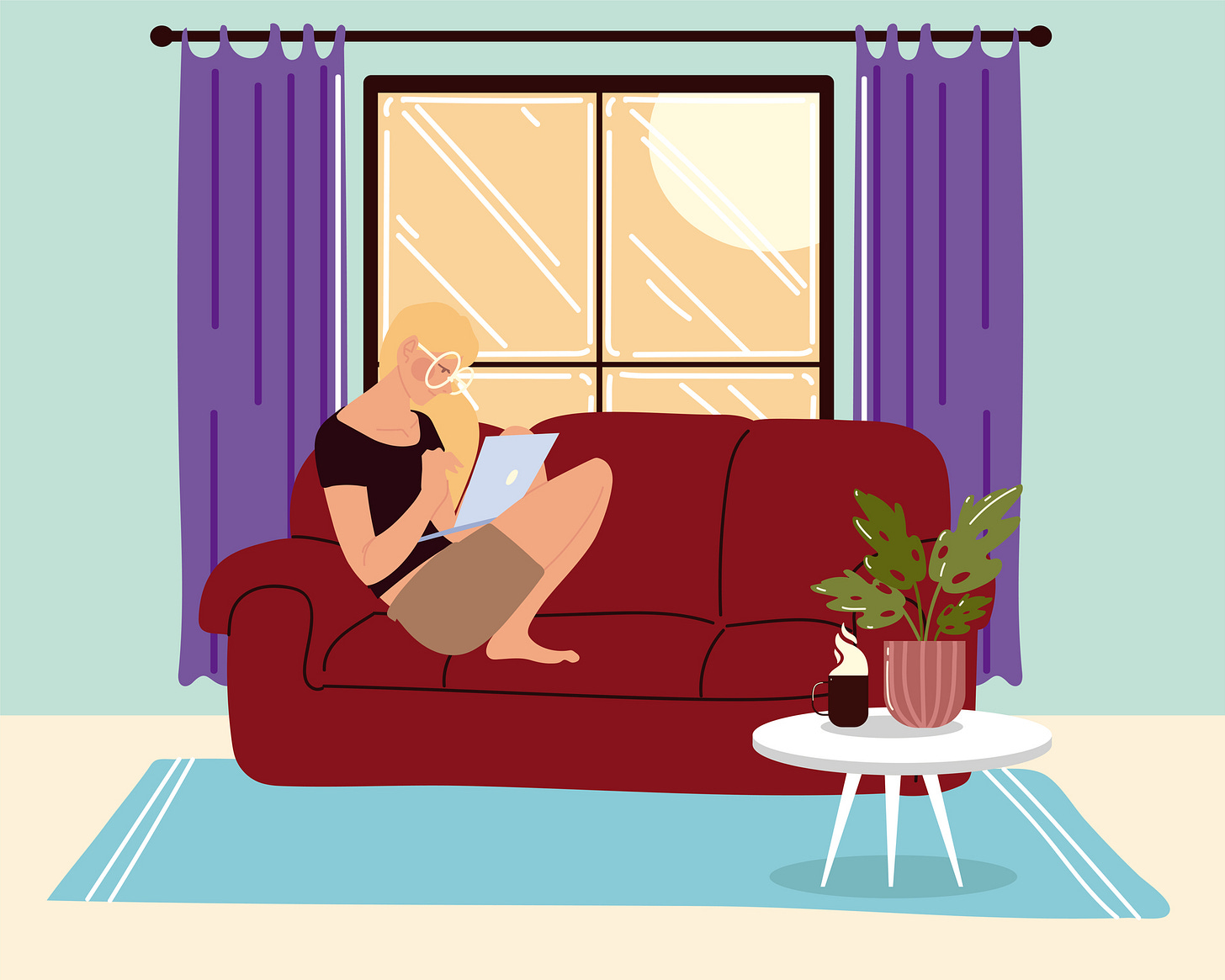Let's talk about the writing process
Your questions answered, part one
Thank you so much for writing in when I put a call out for questions in this thread, I got so many great ones! I’ve categorised the questions into three separate posts as a few different themes kept showing up. (Writing, creativity, growing a brand/business.) This first instalment is answering mostly your writing questions. Lots of things are covered below: writing when you have no ideas, creating a proposal, making the leap into freelance writing, pros and cons of routines and how to find the time to write. Hope you enjoy reading, and as ever let me know your thoughts or further questions in the comments if you feel inclined.
On writing when you don’t feel like it
Q: “What helps you move through times when you don't feel like writing? When nothing seems to come to mind? I've been struggling with this recently, and at times I feel like a failure for not having an ocean full of ideas to choose from in my brain. Or, I feel like I have to come up with something "clever" or incredibly insightful or earthshaking.”
A: Sometimes I feel like creativity is a stubborn child. It only wants to come out and play when you let it be free, give it ice-cream, loosen your grip and show it some love and attention. If you try and force it, it will stand in the corner of the room with its arms crossed. Your creativity won’t miraculously show up or solve a riddle if you make it, force it, tell it off etc. This is something Julia Cameron talks about a lot in Write For Life, how the only way to gently coax it out of hiding is by putting zero pressure on it, or yourself. I know this is hard. I remember in the pandemic my creative well was feeling truly empty. I had NO ideas. I remember feeling so annoyed, why didn’t I have another fabulous idea for a novel, already? I even bought myself different portable keyboards, thinking that if my writing tools were more fun, then my creativity would magically show up. Ha. Nope.
So I did as Julia said, and I took myself out for the afternoon and ditched my attempts at writing. When I came home, I attempted to write anything, no matter how ‘boring’ it might be. I wrote 100 very simple words about my local park. The dogs, the benches, the trees, my emotions. I ended up posting my (quite boring, I thought) words on Instagram and it got 4,000 shares (eh? This is a lot more shares than my other “well-thought-out” writing has ever received). It doesn’t actually matter at all about performance of the post — I only mention it to show you that this mundane thing I wrote happened to resonate the most with people, and therefore clearly it wasn’t boring at all.
Also, having “an ocean full of ideas” can sometimes be a hindrance — too many ideas can cause a bottleneck effect and you can end up getting confused, not knowing which direction to go. Having a fewer amount of ideas can actually be a blessing, not a curse, and we can be our most creative when we feel limited by choice with a few tools at our disposal. Sounds like you are putting a lot of pressure on yourself — I dare you to charm and befriend yourself for a few days/weeks (i.e. go on an Artist Date) and see what happens. Write down what you see, and how you feel — and don’t try and be clever. :)
On writing processes
Q: “I’d love to know your process for writing a non-fiction book i.e any books you felt were invaluable in terms of how to structure etc and also your methods for researching, interviewing, time spent on each subject, and the order in which you write. I’m currently in research stage and it’s all feeling a bit daunting at the moment.”
A: There are so many ways to do it, and of course what’s right for me may not be right for you. In terms of my books (both non-fiction and fiction) I’m not a planner, at all. I go with gut instinct, intuition and following the story like a dog following its nose. For The Success Myth for example, I spent six months talking about it, journaling on it, and reading countless articles about the topic. Gathering nuts like a squirrel (not sure why I’m using so many animal analogies, lol.) The “Notes” section on my Google Drive was full to the brim. I suppose I just ‘immersed’ myself in the subject matter for a period of time before I even thought about what the book would look like. Then, I avoid my laptop. I take a big blank piece of paper and start doodling and mapping. Instead of: what should the chapters look like? I ask myself: what would *I* find the most interesting? What other authors/book formats do I like? How would this book be enjoyable to read? How can I tell this story easily, and simply, without overthinking it? From there I feel like I have some structure and bones to it, a sturdy foundation under my feet to always revert back to and build on. This is essentially what your proposal is: a document that acts as a skeleton to help you build your book slowly and in your own way. In terms of books that help me with non-fiction, I would recommend: Writing Down the Bones by Natalie Goldberg and Write It All Down: How to Put Your Life on the Page by Cathy Rentzenbrink.
On having, or not having, a writing routine
Q. “Do you have a morning and/or an evening routine for writing, spirituality, meditation etc?”




